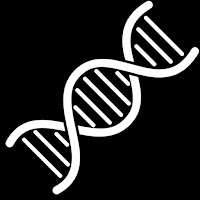Heart is an important organ in human beings and all other multicellular organism. It plays an important role in supply of blood to diffrent parts of our body. Generally it pumps the blood into our body by contracting and expanding its chambers.But in today's situations of covid, it is in danger.
Recent studies derived that the new covid varient known as SARS-CoV-2 can majorly damage the 'cardiomyocytes', generally known as heart cells. It is also thought that damage to heart cells may contribute to the symptoms of long COVID. The population died with COVID-19 that have underlying heart problems are four times more that the population died without having any heart problems.The case fatality rate with COVID-19 rises from 2.3% to 10.5% in those individuals that already have some heart problems.
How SARS-CoV-2 infects our cells?
We all have diffrent types of proteins present in external surfaces of our cells. One of these proteins is ACE2. To gain entry into our cells, SARS-CoV-2 hijacks this surface protein. There are some spikes like proteins present on the surface of SARS-CoV-2 that gives its characteristic 'corona' like appearance. These spike proteins binds with the ACE2 and then cleaved. This cleavage induces the tranfer of viral genome of SARS-CoV-2 into the cell. The virus hijacks the host cell’s machinery and starts making copies of itself. In other words, it starts spreading into host body.
Professor Anthony Davenport from the Department of Medicine and a fellow at St Catharine’s College, Cambridge said: “The spike protein is like a key that fits into the ‘lock’ on the the ACE2 receptor allowing its entry."
Development of lab-grown heart cells:
Stem cells are the cells that are able to make a whole organ or an organism. A team of scientists at the University of Cambridge has used human embryonic stem cells to grow clusters of heart cells in the lab. They shown that these cells mimic the behaviour of the cells in the body. This cluster of the heart cells can beat as if to pump blood. Crucially, these model heart cells also contained the key components necessary for SARS-CoV-2 infection in particular, the ACE2 receptor. They also published a video on their University channel showing their lab grown heart cells beating with virus.
Dr Sanjay Sinha from the Wellcome-MRC Cambridge Stem Cell Institute said: “Using stem cells, we’ve managed to create a model which, in many ways, behaves just like a heart does that is beating in rhythm. This has allowed us to look at how the coronavirus infects cells and, importantly, helps us screen possible drugs that might prevent damage to the heart.”
How they tested virus with these cells?
With special biosafety laboratories and using a safer, modified synthetic virus that is decorated with the SARS-CoV-2 spike protein, the team mimicked how the virus infects the heart cells. Then they used this model to screen for potential drugs to block infection.
They tested some drugs that targeted the proteins involved in SARS-CoV-2 viral entry. Some of them significantly reduced levels of infection. These included an ACE2 antibody and DX600.
DX600 - an experimental Covid drug:
DX600 is an experimental molecule that specifically targets ACE2. It inhibits the activity of peptides that play an important role in allowing the virus to break into the cell. In other words, DX600 is an ACE2 peptide antagonist.
It was shown by scientists that DX600 was around seven times more effective at preventing infection compared to the antibody, though the researchers say this may be because it was used in higher concentrations. It wouldn't likely to be toxic because the drug did not affect the number of heart cells.
How DX600 prevents Covid infection?
Professor Anthony Davenport said that, “DX600 acts like gum on the ACE2 proteins, jamming the lock’s mechanism and making it much more difficult for the key to turn and unlock the cell door." In other words, it prevents the entry of viral genetic material into host cells.
Researchers said that “We need to do further research on this drug, but it could provide us with a new treatment to help reduce harm to the heart in patients recently infected with the virus, particularly those who already have underlying heart conditions or who have not been vaccinated. We believe it may also help reduce the symptoms of long COVID.”
Reference




